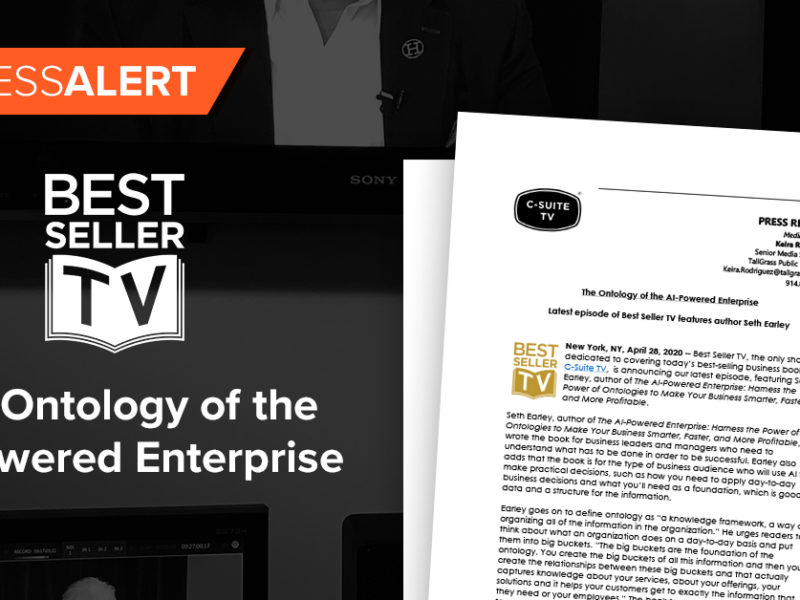
Millennials Bring Collaboration to Companies, Ready or Not
Millennials Bring Collaboration to Companies, Ready or Not https://csuiteold.c-suitenetwork.com/wp-content/uploads/2015/05/8469827344_e116d0b9da_z.jpg 640 427 C-Suite Network https://csuiteold.c-suitenetwork.com/wp-content/uploads/2015/05/8469827344_e116d0b9da_z.jpgby Warren Barkley
Eighty million strong, outnumbering their Baby Boom generation elders, Millennials are poised for a takeover. For companies that adapt and adopt, the takeover doesn’t have to be hostile… as long as everyone plays nice and collaborates.
The New York Times recently labeled the 18-33-year-old demographic as “Generation Nice.” Entering the workforce with natural tendencies to collaborate and share, Millennials are changing the workplace at a pace faster than most senior business leaders realize.
Millennials are so far ahead of the collaboration curve that they have moved beyond BYOD (Bring Your Own Device) into a culture of BYOC (Bring Your Own Collaboration). Frustrated with the lack of formal collaboration tools they find on the job, they use their own – bringing Dropbox, Evernote, Asana, and join.me into the workplace, They feel empowered to use whatever tool they need, whether IT provides it or not. They are diverse, well educated, open-minded and optimistic, but not without concern for the future.
Collaboration is second nature to these digital natives. They’ve grown up in a connected world and feel entitled to connectivity that stretches virtually around the globe. At work, they expect to find something like the Skype/Snapchat world. If you watch kids today, you’ll see that they’re forever texting, connecting via Skype, sharing their content, and throwing documents back and forth; as a way to collaborate on homework assignments.
The new workforce knows collaboration, needs to collaborate, and feels empowered to collaborate with anyone, anywhere. If they can’t collaborate, they leave — either to another company or off to do their own thing.
There’s a fierce talent war to get that top 5-10 percent coming out of school, an expensive fight and a wasteful one for the company that isn’t also building a collaborative culture. Realizing the challenge, perceptive companies are asking how they can:
- Create social collaboration inside the company,
- Move from meetings about work to meetings where work is done,
- Provide flexibility in the tools and devices their employees use, and
- Create geo-independent communities of experts in their companies that are easily reachable and discoverable.
Future Workplace surveyed more than 1,000 knowledge workers and 150 managers and found that the ability of an employer to provide ongoing opportunities to share openly and collaborate came up as the fourth most frequently mentioned criterion for seeking a best-of-breed employer.
More than the people that they work for, Millennials understand technology and know how it works. They’re constantly looking for ways to connect and extend collaboration at will. When they don’t get that opportunity, they get frustrated. And they get frustrated quickly. Our own analytics found that when Millennials download a new app, there’s a window of about two minutes to engage the customer, or they’ll never come back to that app again. Either they’re going to use it, or they’re gone.
At SMART, I recently hired a Millennial into one of the teams I was running. She didn’t have all the experience or background for the role but the passion was there. The team was made up of a bunch of experienced people who had been largely doing things the same way for a while. She burst into the scene with new processes, new tools and interesting ideas. It was likely a rough start for her and the team, but it raised the level of performance of the whole group. Millennials can and will be your collaborative change agents if you give them the support they need.
So, how do companies rate when it comes to providing a truly collaborative culture? SMART Technologies created an online collaboration assessment tool that will evaluate a company’s CQ — Collaboration Quotient. The tool has generated the startling data that less than 14 percent of the thousands of companies evaluated are rated as fully optimized for collaboration.
How does your company CQ rank? How will you instill the collaborative culture Millennials crave? How can you equip the best and brightest of this rising generation gets with the collaboration technology they need to add their distinctive value to your company’s bottom line?
Millennials are a trending topic. So play nice with the “Nice Generation.” Foster a culture of collaboration, get them the tools for true collaboration, and then reap the benefits… together.
*This article originally appeared on WIRED.com.
 Warren Barkley is the CTO of SMART Technologies with more than 17 years of technology experience and leadership, most recently serving as General Manager in the Microsoft Lync/Skype division. Barkley held several key positions in Microsoft over his tenure and was instrumental in the development of Microsoft Lync as the communication and collaboration software of choice for Fortune 500 companies. At Microsoft he played a central role in establishing WiFi as a worldwide standard, and building world class real time communications technologies used by hundreds of millions of users every day. Barkley holds over 35 worldwide patents in networking, wireless and communications.
Warren Barkley is the CTO of SMART Technologies with more than 17 years of technology experience and leadership, most recently serving as General Manager in the Microsoft Lync/Skype division. Barkley held several key positions in Microsoft over his tenure and was instrumental in the development of Microsoft Lync as the communication and collaboration software of choice for Fortune 500 companies. At Microsoft he played a central role in establishing WiFi as a worldwide standard, and building world class real time communications technologies used by hundreds of millions of users every day. Barkley holds over 35 worldwide patents in networking, wireless and communications.




